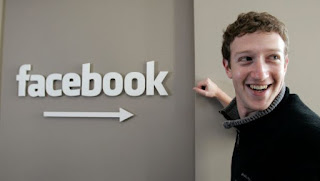Facebook is ripping society apart, and other reasons to rethink social media

When Chamath Palihapitiya joined Facebook in 2007, it had 50 million users. By the time he left after four years, it had 800 million. He was its vice-president for user growth. These days, he feels tremendously guilty. "I think we all knew in the back of our minds, even though we feigned this whole line that there probably aren't any bad consequences, I think in the deep recesses of our minds we kind of knew something bad could happen," he told the Stanford Business School last month and reported for the first time this week. "The short-term, dopamine-driven feedback loops that we've created are destroying how society works. No civil discourse, no co-operation, misinformation, mistruth, and it's not an American problem - this is not about Russian ads - this is a global problem. "We curate our lives around this perceived sense of perfection, because we get rewarded with these short-term signals - hearts, likes, thumbs-up -and we conflate that with...









